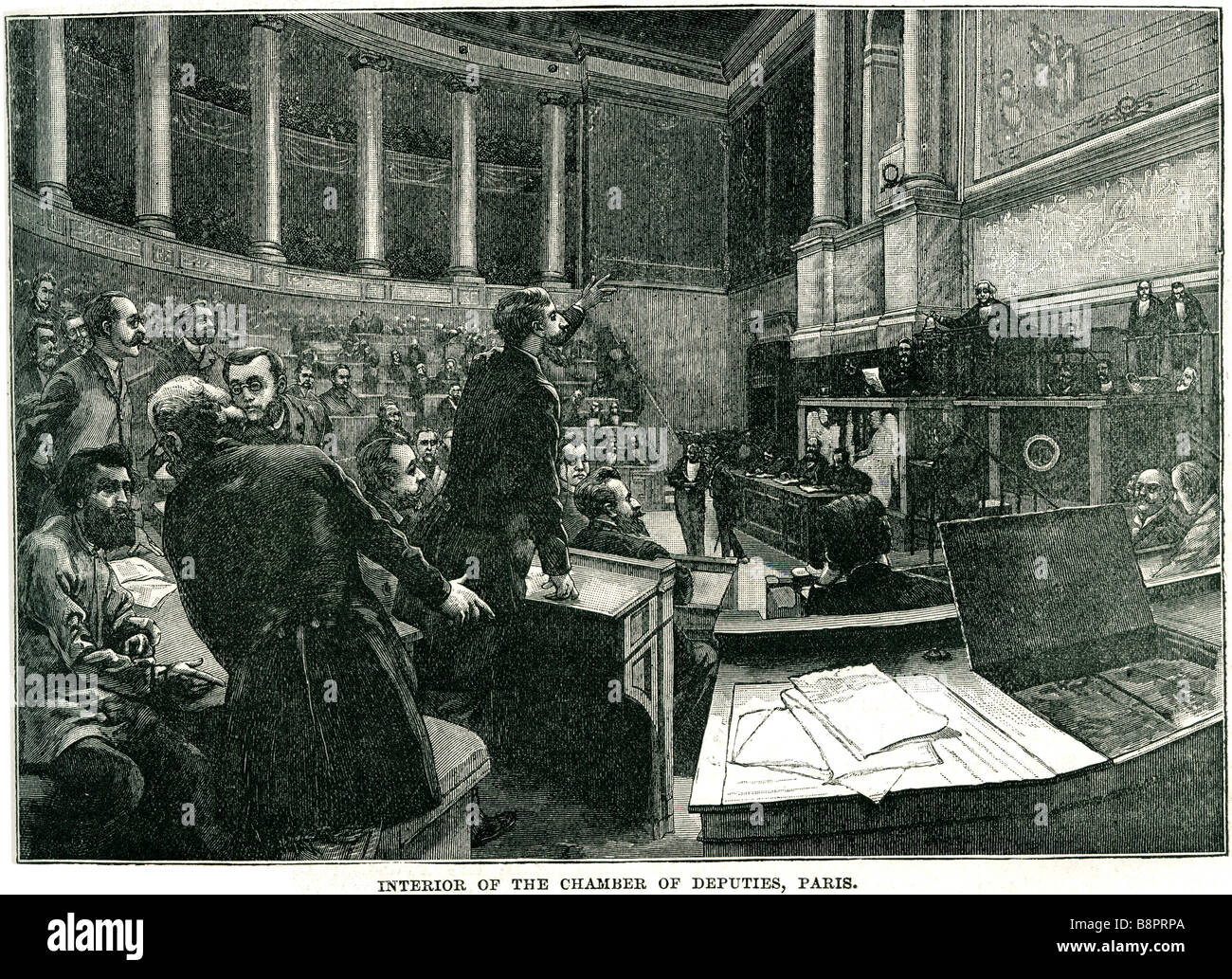Chamber of Deputies Paris France 1873 French Parliament

Image details
Contributor:
19th era / Alamy Stock PhotoImage ID:
B8PRPAFile size:
53.7 MB (7.1 MB Compressed download)Releases:
Model - no | Property - noDo I need a release?Dimensions:
5082 x 3690 px | 43 x 31.2 cm | 16.9 x 12.3 inches | 300dpiMore information:
Chamber of Deputies (French: la Chambre des députés) was the name given to several parliamentary bodies in France in the nineteenth and twentieth centuries: 1875–1940 during the French Third Republic, the Chamber of Deputies was the legislative assembly of the French Parliament, elected by universal suffrage. When reunited with the French Senate at Versailles, the French Parliament was called the National Assembly (Assemblée nationale) and carried out the election of the President of the French Republic. Created by the Charter of 1814 and replacing the Corps législatif, which existed under the First French Empire, the Chamber of Deputies was composed of individuals elected by census suffrage. Its role was to discuss laws and, most importantly, to vote taxes. According to the Charter, deputies were elected for five years, with one-fifth renewed each year. Deputies needed to be 40 years old and to pay 1000 francs in direct contributions. Government ministers could be chosen from among the deputies, and this resulted in giving the Restoration government a slight, albeit minor, parliamentary and liberal character. For the period 1815-1816, the (then) Ultra-royalist chamber was referred to as the Chambre introuvable. The Chamber of Deputies was elected by census suffrage according to the Charter of 1830. The political life of the July Monarchy was defined by the split within the Chamber of Deputies between the progressive movement (considered the Charter as a starting point) and the conservative wing (who refused any further modifications). Although both parties traded power in the initial stages, by 1840 the conservative members around François Guizot had seized control. From 1830, deputies were elected for five years. They needed to be 30 years old and to pay 500 francs in direct contributions. The king convoked the chamber every year, and he had the power to extend the parliamentary session or to dissolve the chamber, although in the latter case he was require